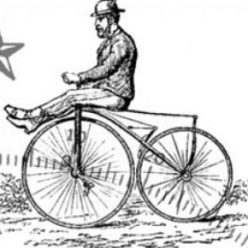I (Shawn Michael Bullock) attended the University of Waterloo (Waterloo, Ontario, Canada) from 1995-2000 as a part of the Waterloo-Queen’s Science Teaching Option, earning two undergraduate degrees at the same time. I graduated with an Honours (Co-op) B.Sc. degree in Physics, with a focus on astrophysics, and a B.Ed. in Education. I completed the requirements for this second degree in 1997-1998, when I was fortunate to be a part of a radically restructured teacher education program at Queen’s University (Kingston, Ontario, Canada) that placed teacher candidates in host schools on the first day of school. These early lessons in the power of learning from experience had a profound impact on how I think about teaching and learning.
I began my teaching career as a physics teacher at a mid-size Toronto high school in Toronto District School Board while teaching physics part-time for a large community college. I started a thesis-based M.Ed. degree part-time at Queen’s University in 2002 so that I could explore my interest in using active-learning pedagogy in the physics classroom. I was particularly interested in creating classroom experiences that help students develop a conceptual understanding of physics. Three years into my career as a secondary school teacher, I accepted a unique position as a seconded teacher for a large secondary school in York Region District School Board. It was in this capacity as a “learning plus” teacher with a focus on language and literacy education that I had the opportunity to teach with colleagues from across the curriculum. I particularly enjoyed the opportunity to teach alongside colleagues from each subject area–a unique experiences that helped me articulate how I understand different types of knowledge used by teachers–and quickly found that I had developed an interest in how teachers’ learn to teach from professional experiences.
In 2005 I enrolled in the Ph.D. program at Queen’s University as a curriculum studies major and a cognitive studies minor whose research interests included teacher education, self-study of teacher education practices, physics education research, and science education. I pursued a SSHRC-funded research program designed to elicit teacher candidates’ perceptions of how professional knowledge is constructed in a preservice teacher education program. One significant finding from my study was that a coherent approach to teaching a preservice methods course can have a significant impact on how teacher candidates understanding and construct professional knowledge of teaching and learning. My dissertation was honoured with an Award of Excellence from the Canadian Association of Teacher Education (CATE) division of the Canadian Society for Studies in Education (CSSE).
After completing my Ph.D., I was an Assistant Professor of Science Education at the University of Ontario Institute of Technology (UOIT) (Oshawa, Ontario, Canada) from 01 July, 2009 to 31 August, 2012. I contributed to the teacher education (B.Ed.) program and the graduate program in adult education and digital technologies, which was taught synchronously and asynchronously online.
As a result of my longstanding interest in the history and philosophy of science and technology and a desire to augment my research program, I enrolled in the graduate program at the Institute for the History and Philosophy of Science and Technology (IHPST) at the University of Toronto (Toronto, Ontario, Canada) in the Fall of 2011. I graduated with an M.A. in the History and Philosophy of Science and Technology in November, 2012. Particular areas of expertise include the history of physics in the 19th century, the history of engineering education, and the development of the modem in the early Cold War.
I became an Assistant Professor of Science Education at Simon Fraser University (SFU) (Burnaby, British Columbia, Canada) on 01 September, 2012. I taught a number of courses in both undergraduate and graduate programs, including but not limited to courses in the philosophy of education, curriculum theory, educational technology, and curriculum methods (including science and a unique course I developed for social studies and history teachers about using the history of science within history).
I earned tenure and was promoted to Associate Professor on 01 September, 2016. Concurrently, I was asked to take on the role of Associate Dean, Graduate Studies in Education for the Faculty of Education. This administrative role provided another opportunity to work alongside colleagues from a variety of academic disciplines, a feature that strengthened my commitment to inter- and intra- disciplinary work in academia.
On 01 September 1, 2017, I moved to the University of Cambridge, U.K., to take up the role of University Senior Lecturer in the History of Education. I have been subject lead on the teacher education (PGCE) history course, a manager for the Secondary PGCE Course, the lead respondent to our 2018 Ofsted Inspection (for which we earned an “Outstanding” rating), the Deputy Director of Learning and Teaching for the Faculty of Education and the (Acting) Director of Learning and Teaching for the Faculty of Education.
On 01 October 2019, I was promoted to a personal Readership in the History of Science, Technology and Education.
On 01 October, 2021, I was made Professor of the History of Science, Technology and Education
Currently, I am the Deputy Director of Learning and Teaching for the Faculty of Education, I teach in the Tripos (undergraduate) program and I supervise graduate students. I am also a Directory of Studies for the Education Tripos and a Bye-Fellow of Emmanuel College.
I am a certified professional physicist (P.Phys.) with the Canadian Association of Physicists.
I am an elected Fellow of the Royal Astronomical Society (FRAS), the Royal Geographical Society (FRGS), and the Royal Royal Society for the encouragement of Arts, Manufactures and Commerce (FRSA). I am also an elected Associate Fellow of the Royal Historical Society.
I maintain qualified teacher status in the U.K. and in the provinces of Ontario and British Columbia, Canada.
I am an active member of the following professional bodies and learned societies:
